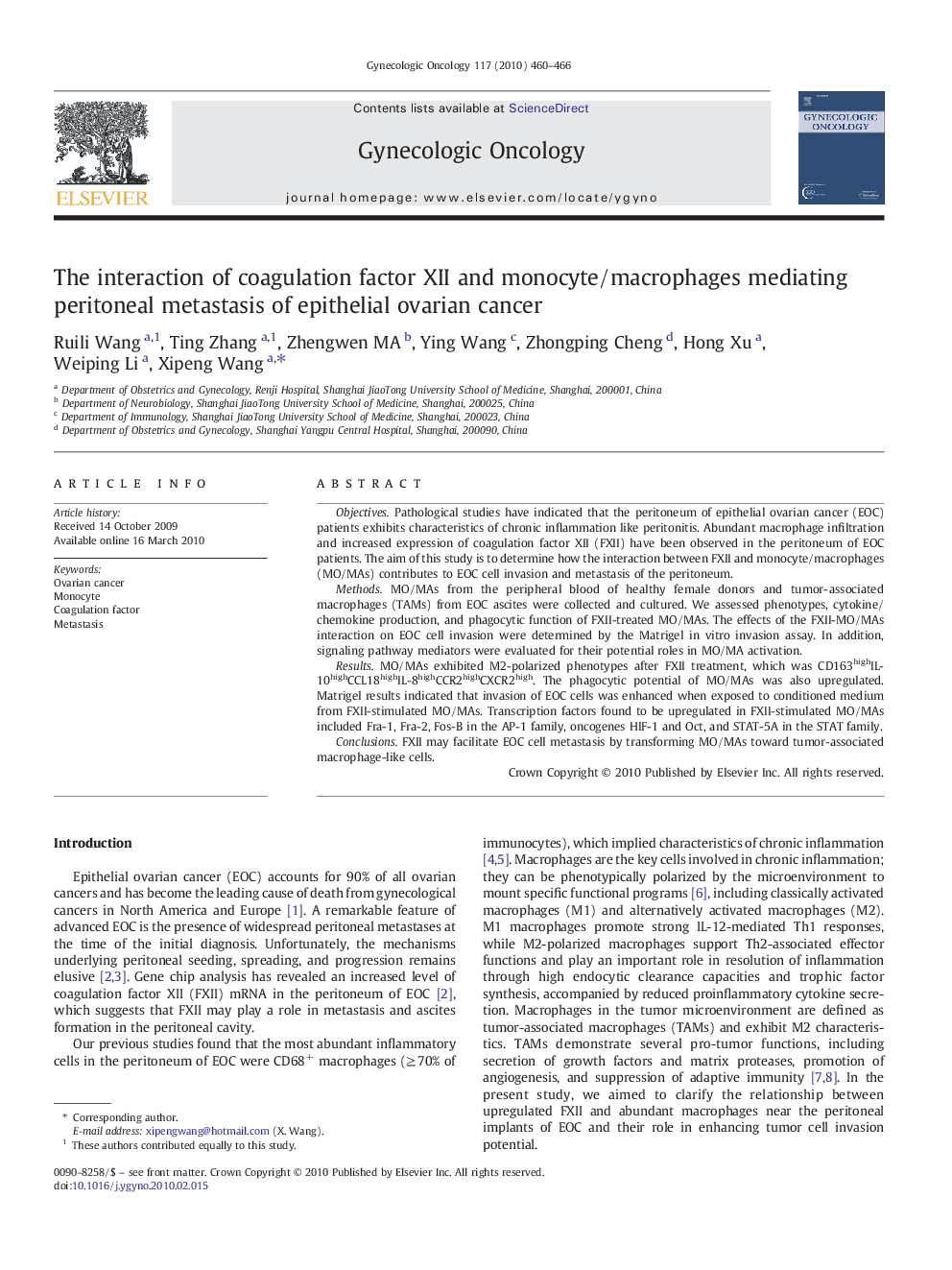| Article ID | Journal | Published Year | Pages | File Type |
|---|---|---|---|---|
| 3944094 | Gynecologic Oncology | 2010 | 7 Pages |
ObjectivesPathological studies have indicated that the peritoneum of epithelial ovarian cancer (EOC) patients exhibits characteristics of chronic inflammation like peritonitis. Abundant macrophage infiltration and increased expression of coagulation factor XII (FXII) have been observed in the peritoneum of EOC patients. The aim of this study is to determine how the interaction between FXII and monocyte/macrophages (MO/MAs) contributes to EOC cell invasion and metastasis of the peritoneum.MethodsMO/MAs from the peripheral blood of healthy female donors and tumor-associated macrophages (TAMs) from EOC ascites were collected and cultured. We assessed phenotypes, cytokine/chemokine production, and phagocytic function of FXII-treated MO/MAs. The effects of the FXII-MO/MAs interaction on EOC cell invasion were determined by the Matrigel in vitro invasion assay. In addition, signaling pathway mediators were evaluated for their potential roles in MO/MA activation.ResultsMO/MAs exhibited M2-polarized phenotypes after FXII treatment, which was CD163highIL-10highCCL18highIL-8highCCR2highCXCR2high. The phagocytic potential of MO/MAs was also upregulated. Matrigel results indicated that invasion of EOC cells was enhanced when exposed to conditioned medium from FXII-stimulated MO/MAs. Transcription factors found to be upregulated in FXII-stimulated MO/MAs included Fra-1, Fra-2, Fos-B in the AP-1 family, oncogenes HIF-1 and Oct, and STAT-5A in the STAT family.ConclusionsFXII may facilitate EOC cell metastasis by transforming MO/MAs toward tumor-associated macrophage-like cells.
